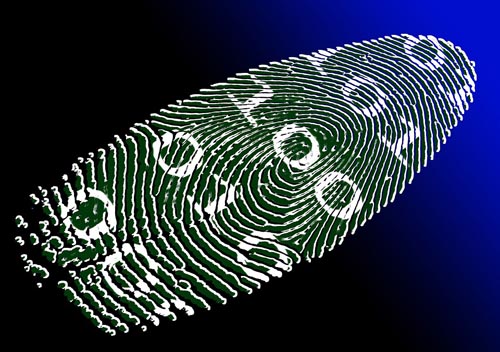Cyber attacks are a breech in business security. Whereas cyber crimes were once few and far between, they are, unfortunately, growing in popularity. More and more businesses are struggling to protect their companies from being set back by a cyber crime, as these crimes can not only affect the business itself, but also its employees, clients, and competitors.
With businesses like Target, Sony, Anthem, and Home Depot, among others, having faced cyber crimes, small businesses should be aware that the threat is very real. If a small security flaw in these large corporations can be found, then small businesses with even less security are at risk.
Many small businesses believe they are safe from cyber crimes, for they believe their business is too small for hackers to be interested; however, no one is immune, especially small businesses. It is much easier to hack into small businesses with lax security, thus small business owners need to take the same precautions large corporations take.
Here are a few ways to protect your business from cyber crimes:
Software Programs
Cyber crimes are ever-evolving, which can leave small businesses always feeling as if they are playing catch-up with the latest security updates. One of the best ways to protect your business’s servers is to invest in the right software programs, including firewall and malware programs, and programs like Business continuity and Disaster Recovery (BCDR) that backup all of your business’s vital information.
These programs are a preventative measure, as they help to keep the threats at bay. Moreover, many of these security software programs will alert you if someone unknown is attempting to hack into the system. In many of these instances you are able to block that IP address from accessing your system, thus eliminating the threat. Moreover, these programs offer security alerts if it believes an email, pop-up, or website is unverified, keeping you from accidentally exposing your business to spam or a virus.
Email Encryption
One of the easiest ways for a hacker to break into your system is through email. If you encrypt your business emails, you are adding an extra layer of security that hackers will need to break through in order to get into your server. Most hackers will be quick to move onto a different business, as that extra step is too much hassle when they could find another business with less security.
Passwords
Password protection is one of the most important areas of cyber security. For both business and personal use, the best way to ensure protection is to use an impenetrable password. There are a few basic rules of passwords, such as making sure to use different passwords, changing them often, and never saving passwords in a public area, including cloud storage.
But, sometimes, even those basic rules are not preventative enough, especially if someone picks a password that is significant to them. Hackers are deft at figuring out passwords, especially when someone uses an easy password they can remember. Thus, all business passwords should be difficult and complex.
Moreover, businesses should consider using two-step password identification, which means an employee needs two passwords to get into the system. If a hacker were to crack one of the passwords, they still would not be in the system. Or, businesses should use fingerprint authentication. Because it is so difficult to replicate, most hackers will not even try to break into the system.
Mindful Employees
Hackers tend to know the business’s weakest assets, which, more often than not, are the employees. Employees tend to make mistakes, such as using a simple password, forgetting to put up firewalls before logging in, etc. These mistakes are often what many hackers are waiting for, as they capitalize on them and get into the business’s server.
By teaching employees to be mindful of their actions and to keep an eye open for business scams you can help keep your business as secure as possible. Anything with suspicious links or an email asking for personal information is most likely a scam, using the employee to get into the system. Informed employees can make smart decisions instead of poor ones that can lead the business straight into the path of a cyber crime.
Protecting your business and your clients is something you should not take lightly. Taking preventative measures can help keep your business safe and secure.
